Spring 2023
As we near Spring of 2023, tons of development transpire in the world. Massive earthquakes have existed in Turkey and Syria. These earthquakes have killed over 100,000 human beings. There is a train derailment in Greece. Also, there is the catastrophe in East Palestine, Ohio where residents suffer poisoned water and environmental destruction along with another Norfolk Southern train derailment in Ohio too. The events in Ohio outline the reality that we have to use environmental regulations along with other solutions in solving our political problems as Americans. Millions of people globally have died from the COVID-19 pandemic, and still, we have some people who want to minimize the pandemic's destructive path. We know that neo-fascists like Trump, DeSantis, and their allies are wrong on tons of issues. Also, it is important to expose fake leftists who claim to be against Western imperialism but want to minimize Russian imperialism in Ukraine. Vladimir Putin admitted that he wanted to be like the Tsar Peter the Great. He doesn't recognize Ukraine's existence via his propaganda speeches. Many of these fake progressive types of people desire Russia to rule Ukraine in an imperial fashion. Putin has executed policies that violate the freedom of the press, the freedom of speech, the freedom of religion, etc. The oppressed have every right to fight for their liberty. These liars talk about Neo-Nazis, but far-right Neo-Nazis live in Russia, Ukraine, and in America. Neo-Nazis are not representative of the vast majority of Ukrainians seeking freedom from Russian aggression. The oppressed have every right to self-defense, and Russian military forces have experienced numerous defeats by 2023. Jill Stein made the mistake to be a dinner guest in Moscow with Putin. The only peaceful solution to war is for the Russians to withdraw its military forces from Ukraine first, and for all parties to have a meeting to establish a long-term solution to the configuration.
Some of the fake leftists even want to defend the human rights violations in China. The government of China has illegal police stations in America and in dozens of other nations of the world. The Chinese police stations in America are completely unjust, a violation of national sovereignty, and against fundamental human freedoms. Also, we make a distinction between the vast majority of Chinese people in China who want freedom, their lives protected, and justice and some members of the Chinese government who endorse human rights abuses (against Uyghurs, Christians, political dissidents, etc.). This isn't about all Chinese people. It is about evil people in the four corners of the world who desire imperialism, sexism, racism, and bigotry in the world instead of tranquility for all in the human family. We are clear to expose and oppose Western imperialism (as I don't view NATO as perfect either) too as we are consistent. The CPAC convention of March of 2023 is typical of the Republican Party endorsing racists, xenophobes, bigots, and far-right extremists who want a nation where voting rights, black history, and other freedoms are restricted permanently. Trump at the CPAC hate rally wants retribution against those who disagree with him and his nefarious agenda. Trump forgets that people have the First Amendment right to disagree with his 2020 election lie talking points, his disregard of legal subpoenas, and his overt hatred against progressive people. We oppose DeSantis and other folks' attack on real black history being taught in schools and the anti-voting measures found nationwide (not just in the South).
As you get older, you see how the Universe is interconnected. All entities of the Universe consist of the same substances. These substances deal with atoms and subatomic entities. In science, there are natural laws, gravity, and natural processes that are real. The human body is a complex biochemical, atomic being that is organized by atoms. There are levels of organization in the human body. At the atomic level, the human body is made of atoms. Atoms have electrons, protons, and neutrons. More than 96 percent of the human body is made up of a few elements called Oxygen, Carbon, Hydrogen, and Nitrogen. Elements are made up of many atoms. Oxygen is the most abundant element in the human body, and carbon is an element related to a huge basis of living matter. Hydrogen is key in living organisms too. Nitrogen is found heavily in DNA too. Atoms come together to exist as molecules. Macromolecules are needed for life to exist on Earth. The four major molecules of life are proteins, nucleic acids, lipids, and carbohydrates. Proteins are formed by amino acids coming together. We, as human beings, definitely need proteins to live a long, healthy life. Proteins help the human body to function. The body uses protein to build and repair tissues, make enzymes, and make hormones plus other chemicals. Nucleic acids are used in DNA (DNA is a molecule made up of atoms. Chromosomes are made up of multiple DNA, DNA is found in the nucleus, and the nucleus is found in the cell) and RNA. Lipids are molecules that have structural components of cell membranes, store energy, and signal molecules. Carbohydrates are sugars of monosaccharides, disaccharides, and polysaccharides (used to store energy, have cellular messaging, and support cells plus tissues).
Trillions of atoms make up one cell. The human body has about 100 trillion cells. At the cellular level, life starts. All living beings have at least one cell. It's like a Universe within a Universe. Cells come together to form tissues. The human body has 4 types of tissues, and they are connective tissues, epithelial tissues, muscle tissues, and nervous tissues. Muscle cells form muscle tissues like smooth muscle tissues, skeletal tissues, and cardiac muscle tissues. Nervous tissues are found in the brain and other locations of the body. Many tissues form organs in the human body. Organs perform specific functions in the body. The brain is the control center of the body. The heart pumps blood through the blood vessels. Organs together form 12 organ systems of the human body. The organism level is all of the atoms, molecules, tissues, organs, and organ systems coming together as one human being. That is why each human being (made up of trillions of cells) is unique, specialized, and has great gifts in the Universe. Cells are made up of proteins, which is a type of molecule. Molecules are a collection of atoms. We are made up of very intelligent atoms with great power and energy.
Atoms are far too small to see directly, even with the most powerful optical microscopes. But atoms do interact with and under some circumstances emit light in ways that reveal their internal structures in amazingly fine detail. It is through the "language of light" that we communicate with the world of the atom. In quantum physics for the past years and decades, they discuss about light links to atoms and frequency all of the time. Similar to a tuning fork or even a musical instrument, the electrons of atoms have a natural frequency at which they tend to vibrate. When a light wave with that same natural frequency impinges upon an atom, then the electrons of that atom will be set into vibrational motion. Most of the atom is empty space. In the Universe, forces from Nature hold structures in order in many cases. Many physicists believe in the value of fractals and even in the existence of consciousness. From the subatomic world to the galaxies, we are made of the same elements, atoms, and stardust from the origin of the Universe. From the Big Bang to human beings, we have great value in the Universe. We aren't accidents as we were formed by trillions of atoms in a combination of natural functions in a complex, intelligent biological system.
Many haters on Twitter and other places on social media criticized Angela Bassett's reaction to Jamie Lee Curtis winning Best Supporting Actress in a movie series (during the 95th Oscars). Frankly, Angela Bassett has the right to show her emotions. Showing her emotion has nothing to do with the hatred of Jamie Lee Curtis. It is just the feeling of disappointment. Angela didn't curse at anyone, she didn't threaten anyone, and she didn't act inappropriately. Many of the critics of Bassett want to criticize a black woman's body language when that policing is the essence of misogynoir. The haters of Angela Bassett revealed their faces to be notorious hypocrites when Angela showed great professionalism. Angela Bassett is one of the greatest actresses of all time. Her earning the NAACP Image Award as Entertainer of the Year is one out of many acknowledgments of her greatness.
Brazil
For over 200 years, Brazil has existed. It is a country with a growing economy, it is a tourism epicenter, and it's home to many sports events. Now in 2023, we have a progressive President named Luiz Inacio Lula da Silva after years of a far-right extremist. Brazil has been part of the epicenter of culture, race, economic issues, and environmental situations. In fact, Brazil is number one of the 17 megadiverse countries with tons of flora and fauna. It is home to the South American Rain Forest supplying much of the world's oxygen with its tree. Human beings are standing up to try to preserve the trees and habitats of Brazil too. Native Americans live in Brazil originally. Today, Brazil is one of the most diverse nations on Earth with Afro-Brazilians, biracial people, multiracial people, white people, Native Americans, Asian people, etc. Brazil's capital city is Brasilia, and the most populous city is Sao Paulo. Rio is the city being home to the 2016 Olympic Games filled with history and records. The nation of Brazil is a federal nation made up of 26 states and the Federal District. Having more than 217 million people, it is one of the highest populated nations in the world. Brazil is considered an advanced emerging economy, having the twelfth largest GDP in the world by nominal, and ninth by PPP measures, the largest in Latin America. As an upper-middle income economy by the World Bank and a newly industrialized country, Brazil has the largest share of global wealth in South America and it is one of the world's major breadbaskets, being the largest producer of coffee for the last 150 years. This year is the perfect era of time to describe the demographics, climate, history, culture, and legacy of the great nation of Brazil.
History
The history of Brazil has a long history. The first people of Brazil were Native Americans. Some of the earliest human remains found in the Americas, Luzia Woman, were found in the area of Pedro Leopoldo, Minas Gerais and provide evidence of human habitation going back at least 11,000 years ago. The earliest pottery ever found in the Western Hemisphere was excavated in the Amazon basin of Brazil and radiocarbon dated to 8,000 years ago (ca. 6000 BC). The pottery was found near Santarém and provides evidence that the tropical forest region supported a complex prehistoric culture. The Marajoara culture flourished on Marajó in the Amazon delta from AD 400 to 1400, developing sophisticated pottery, social stratification, large populations, mound building, and complex social formations such as chiefdoms. By the time of the Portuguese arrival, the territory of current-day Brazil had an estimated indigenous population of 7 million people. They were mostly semi-nomadic human beings. They did hunting, fishing, gathering, and had migrant agriculture. The Native American people of Brazil were made of large indigenous ethnic groups like the Tupis, Guaranis, Ges, and Arawaks. The Tupí people were subdivided into the Tupiniquins and Tupinambás, and there were also many subdivisions of the other groups. Before the arrival of the Europeans, the boundaries between these groups and their subgroups were marked by wars that arose from differences in culture, language and moral beliefs. These wars also involved large-scale military actions on land and water.
Following the 1494 Treaty of Tordesillas, the land now called Brazil was claimed for the Portuguese Empire on April 22, 1500, with the arrival of the Portuguese fleet commanded by Pedro Álvares Cabral. The Portuguese encountered indigenous peoples divided into several ethnic societies, most of whom spoke the languages of the Tupi–Guaraní family and fought among themselves. Though the first settlement was founded in 1532, colonization effectively began in 1534, when King John III of Portugal divided the territory into the fifteen private and autonomous Captaincy Colonies of Brazil. The colonies struggled, so the Portuguese King restructured them into the Governorate General of Brazil in the city of Salvador. It was the capital of a single and centralized Portuguese colony in South America. During the first two centuries of colonization, indigenous and European groups had wars, formed alliances, etc. in order to gain advantages against each other. Nearly five million enslaved Africans were imported to Brazil during the Atlantic slave trade, more than any other country. Cane sugar was Brazil's most important export by the mid 1500's. Many African slaves came from Angola and Mozambique. By the end of the 17th century, sugarcane exports began to decline and the discovery of gold by Bandeirantes in the 1690s would become the new backbone of the colony's economy, fostering a Brazilian Gold Rush which attracted thousands of new settlers to Brazil from Portugal and all Portuguese colonies around the world. This increased level of immigration in turn caused some conflicts between newcomers and old settlers. Portugal wanted to control other areas. They fought the French and the Dutch over South American lands. Portugal fought slave rebellions from the Quilombo of the Palmeres and the movements for independence or autonomy. By the early 1800's, Brazil was a Kingdom. The Brazilians and Portuguese fought. Prince Pedro was declared the first Emperor of Brazil, with the royal title of Dom Pedro I, resulting in the founding of the Empire of Brazil by October 1822. The Brazilian War of Independence existed, and Portugal recognized Brazilian independence by August 29, 1825. Pedro II was the Emperor of Brazil from 1831 to 1889. Slavery was abolished by 1888. The military dominated Brazil for years. By the 20th century, Brazil has debates among conservative and more liberal factions. Joao Goulart was deposed in April 1964 by a coup. A military dictatorship ruled Brazil for years.
Rousseff was impeached by the Brazilian Congress in 2016, halfway into her second term, and replaced by her Vice-president Michel Temer, who assumed full presidential powers after Rousseff's impeachment was accepted on August 31. Large street protests for and against her took place during the impeachment process. The charges against her were fueled by political and economic crises along with evidence of involvement with politicians (from all the primary political parties) in several bribery and tax evasion schemes. In 2017, the Supreme Court requested the investigation of 71 Brazilian lawmakers and nine ministers of President Michel Temer's cabinet who were allegedly linked to the Petrobras corruption scandal. President Temer himself was also accused of corruption. According to a 2018 poll, 62% of the population said that corruption was Brazil's biggest problem. In a 2022 evaluation of whether government officials in the legislative branch use public office for personal gain, Brazil held the penultimate position (139 out of 140 countries).
In the fiercely disputed 2018 elections, the controversial conservative candidate Jair Bolsonaro of the Social Liberal Party (PSL) was elected president, winning in the second round Fernando Haddad, of the Workers Party (PT), with the support of 55.13% of the valid votes. In the early 2020s, Brazil became one of the hardest hit countries during the COVID-19 pandemic, receiving the second-highest death toll worldwide after the United States. Experts have largely blamed the situation on the leadership of President Bolsonaro, who throughout the pandemic has repeatedly downplayed the threat of COVID-19 and dissuaded states and cities from enforcing quarantine measures, prioritizing the nation's economy. Now, Lula da Silva is the new President of Brazil in 2023.
Afro-Brazilians
The history of Afro-Brazilians is long and extensive. Culturally, Afro-Brazilians have made great contributions to world history. While many people try to ignore their great history, we will not. Afro-Brazilian people came from Africa almost five centuries ago. The vast majority of Afro-Brazilians are Bantu people and West Africans in general. Many West African people from the Ga-Adangbe, Yoruba, Igbo, Fon Ashanti, Ewe, Mandinka (and other people who are from Guinea, Ghana, Benin, Guinea-Bissau, and Nigeria) live in the Bahia region. Bantu people were brought to Brazil from Angola, Congo, and Mozambique. They were sent in large measure to Rio De Janeiro, Minas Gerais, and the Northeastern area of Brazil. Black people in Brazil centuries ago came from diverse ethnicities and different African regions. For example, Gilberto Freyre noted the major differences between these groups. Some Sudanese peoples, such as Hausa, Fula, and others were Islamic, spoke Arabic, and many of them could read and write in this language. Freyre noted that many slaves were better educated than their slave owners, because many Muslim slaves were literate in Arabic, while many Portuguese Brazilian slaveowners could not even read or write in Portuguese. These slaves were largely sent to Bahia. Even today the typical dress of the women from Bahia has clear Muslim influences, as the use of the Arabic turban on the head. Despite the large influx of Islamic slaves, most of the slaves in Brazil were brought from the Bantu regions of the Atlantic coast of Africa where today Congo and Angola are located, and also from Mozambique. In general, these people lived in tribes.
The people from Congo had developed agriculture, raised livestock, and domesticated animals (such as goats, pigs, chickens, and dogs). They produced sculptures in wood. Some groups from Angola were nomadic and did not know agriculture. Sugarcane was introduced in Brazil by 1532. The first known evidence of slaves in Brazil was in 1538. Brazil was the number one sugar producer in the world by 1580. Afro-Brazilians fought for their rightful freedom. Palmares Quilombo in Pernambuco, or the present-day Alagoas state, was founded by runaway slaves in 1605. In 1612, Alexandre de Moura, captain of Pernambuco, makes a request to form capitão de campo (bush captain) or capitão de mato to retrieve runaway slaves and fight quilombos/mocambos in the eight parishes. Quilombos is the dominant term in Minas Gerais. Mocambos is the predominant term in Bahia. Black people fought back against slavery continuously. Henrique Dias, a black man was honored by the military in Brazil for fighting back against the Dutch invasion of Brazil in 1633. The Dutch invaded Palmares Quilombo in 1640, but they are gone from Brazil by 1654.
Between 1680 and 1750, half of all slaves freed in Bahia purchased their own freedom or were purchased by relatives. Zumbi was betrayed, captured, and decapitated in 1694. Zumbi was a black freedom fighter in Brazil. The Palmaries Quilombo was invaded and conquered by Brazilian forces. Many places like the Sao Francisco Church and Convent of Salvador were built by slave labor in 1708. The biracial person Antonio Fransico Lisboa, who made sculptures, was born in Ouro Preto in 1730. In 1752, Rosa Maria Egipcíaca da Vera Cruz publishes, Teologia Do Amor de Deus, Luz Brilhante Das Almas Preregrinas (The Sacred Theology of God's Love, Bright Light of the Pilgrim Soul), the first black woman to be published. Slavery against Native Americans was outlawed by 1755. By 1789, slaves on the sugar plantation Engenho Santana in Ilhéus, south of Bahia revolts, runaway and formed quilombo. By the late 1700's, capoeira existed massively in Brazil. Capoeira is a form of dance and martial arts created by Afro-Brazilians for self-defense, dance, and having fun. By 1809, Aja-Fon and Yoruba from Bahia slaves formed quilombo, the controlled village of Nazare for months. Twenty slave revolts existed from 1809 to 1835. 2.5 million slaves were forced to be in Brazil in 1810. After Brazil breaks from Portugal, more revolts happen. There was the 1826 Zeferina Revolt, which attacks Bahia, Zeferina claimed to be Nâgo (Yoruba) and was from the Urubu Quilombo, who worshipped Shango from the Oyo Empire.
The 1832 Society for the Protection of the Needy was founded in Bahia, free black men raise funds to purchase slaves. There was the 1835 Malé Revolt -revolt by Muslim slaves in Bahia of Yoruba ancestry, 500 slaves took part, revolt had a jihadist overtone and the 1838 Manuel Congo in Rio Janeiro. There was the 1854 book called, "The Biography of Mahommah Gardo Baquaqua: His Passage from Slavery to Freedom in Africa and America," only narrative of an African-born slave in Brazil. In 1859, Maria Fermina Dos Reis from Manranhão first woman novelist publishes Ursula, anti-slavery abolition literature. The anti-slavery journal of Diabo Coxo (Lame Devil) was published in 1864. Racists in Brazil during this time promote scientific racism. By 1871, the Law of Free Wombs freed all children born of a slave mother (called Lei do Ventre Livre). By 1880, abolitionists fight back against slavery. Slavery was banned by 1888 via the Golden Law. Yet, racists promote a policy of blanqueamiento or trying to exterminate the black population genetically. Brazil bans immigration of Africans and Asians (except Japanese people and Middle Easterners) in support of whitening. Racist Rui Barboasa destroyed slave records on Afro-Brazilians making it difficult to determine point of origin. By the early 20th century, white racists promote blanqueamiento or whitening. In 1911, Joao Baptista de Lacerda elaborates on whitening ideology at the First Universal Race Congress, "in the course of the next century the mixed bloods will have disappeared from Brazil. This will coincide with the extinction of the black race in our midst." Joao Baptista de Lacrerda was a wicked racist coward that I have no respect for. Black people will always exist in Brazil and worldwide forever and ever. The Afro-Brazilian hero Abdias do Nascimento was born on March 1914. Manuel Raimundo Querino publishes African Contribution to Brazilian Civilization,(O Colono Prêto Como Fator da Civilação Brasileiro), the first historical study of Afro-Brazilians, the lone voice against whitening ideology. Police raids in the 1920's tried to suppress traditional African regions.
Later, in 1931, the Brazilian Black Front (Frente Negra Brasileira) was founded by Arlindo Veiga dos Santos, Isaltino Veiga dos Santos, and Jose Correia Leite. A Voz da Raca (The Voice of the Race) was its paper. It fought for social and economic uplift of Afro-Brazilians and was the most important black organization since the abolition movement. Gilberto Freyre promoted the lie that racism doesn't exist in Brazilian society. In 1944, Abdias do Nascimento founded the Black Experimental Theater (Teatro Experimental do Negro or TEN) in Rio de Janeiro, which celebrated Afro-Brazilian culture and trained black actors, at a time when black roles were played by white actors in blackface. Brazil has civilian rule in 1945 and ends in 1964. The racist whitening agenda ends. In 1959, the class film of Black Orpheus existed to celebrate Afro-Brazilian life. The Alfonso Arinos Law prohibits racial discrimination. Pele won the World Cup with Brazil. In 1967, Gilberto Gil performs at the Third Festival of Brazilian Popular Music, inaugurating the Tropicália, a cultural movement in the arts and includes Caetano Veloso, Maria Bethãnía, Gal Costa, Tom Zé. Florestan Fernandes was purged from the University of Sao Paulo. Fernandes had a counter theory to Freyre's "racial democracy." Freyre's "racial democracy" was espoused by the military dictatorship and Brazilian society. Fernandes coined the phrase “the prejudice of having no prejudice." Brazil banned race on the census.
The 1978 Black Consciousness Movement (Moviemento Negro) an organization dedicated to the promotion of Afro-Brazilian culture and social empowerment in Brazil is formed. Founders included Flavia Cardanca, Hamilton Cardoso, Vander Lei Jose Maria, Abdias do Nascimento. The organization was founded after the assassination of taxi driver Robson Luz by police. In 1974, Ile Aiye became the first group to de-segregate Rio Carnaval, tried to re-Africanize carnival. Edivaldo Brito and Benedita da Silva helped Brazil in many ways. Celso Pitta was Sao Paolo's first elected black mayor. Brazil by the 21st century has affirmative action. In 2004, Taís Araújo acquired a major starring role in Da Cor do Pecado, becoming the first Afro-Brazilian in a leading role in a telenovela. Salvador, Bahi is the largest Afro-Brazilian metropolitan area by 2007. Racists forced the Ms. Globeleza title to be removed from Nayara Justino because of her Afro-Brazilian heritage. Afro-Brazilian Marina Silva makes her competitive bid for the presidency of Brazil in 2014.
Rio 2016 Olympics
The 2016 Summer Olympics in Rio de Janeiro, Brazil was one of the most exciting Olympics of all time. It was the Games of the XXXI Olympiad. This multisport event lasted from August 5th to 21, 2016. During those games, I was almost 33 years old in a few months after the Games (so, I was born in 1983). Rio was announced as the city to host the games at the 121st IOC Session in Copenhagen, Denmark on October 2, 2009. 11,238 athletes from 207 nations took part in the 2016 Games, including first-time entrants Kosovo, South Sudan, and the Refugee Olympic Team. With 306 sets of medals, the Games featured 28 Olympic sports, including rugby sevens and golf, which were added to the Olympic program in 2009. These sporting events took place at 33 venues in the host city and at five separate venues in the Brazilian cities of São Paulo, Belo Horizonte, Salvador, Brasília, and Manaus. The Rio 2016 Olympics was the first Olympics held in a South American nation. The United States topped the medal table, winning the most gold medals (46) and the highest number of medals overall (121); the US team also won its 1,000th Summer Olympic gold medal overall. Great Britain finished second and became the first country to increase its tally of medals in the Olympiad immediately after being the host nation in 2012. China finished third in the medal table. Host nation Brazil won seven gold medals and 19 medals, its best result at any Olympics, finishing in thirteenth place. Bahrain, Fiji, Ivory Coast, Jordan, Kosovo, Puerto Rico, Singapore, Tajikistan, and Vietnam all won their first gold medals, as did the group of Independent Olympic Athletes (from Kuwait).
Over 10 venues were developed for the games. The largest venue at the Games in terms of seating capacity was the 74,738-seat Maracanã Stadium, which served as the ceremony's venue and site of the football finals. The second largest stadium was the 60,000-seat Estádio Olímpico João Havelange, which hosted track and field events. The athletes' village was said to be the largest in Olympic history. Fittings included about 80,000 chairs, 70,000 tables, 29,000 mattresses, 60,000 clothes hangers, 6,000 television sets, and 10,000 smartphones. The Barra Olympic Park is a cluster of nine sporting venues in Barra da Tijuca, in the west zone of Rio de Janeiro, Brazil. The site was formerly occupied by the Autódromo Internacional Nelson Piquet, also known as the Jacarepaguá Formula One circuit. There are nine venues within the Olympic Park. These venues are: Carioca Arena 1 – basketball (capacity: 16,000), Carioca Arena 2 – wrestling, judo (capacity: 10,000), Carioca Arena 3 – fencing, taekwondo (capacity: 10,000), Future Arena – handball (capacity: 12,000), Maria Lenk Aquatics Centre – diving, synchronized swimming, water polo (capacity: 5,000), Olympic Aquatics Stadium – swimming, water polo play-offs (capacity: 15,000), Olympic Tennis Centre – tennis (capacity: 10,000 Main Court), Rio Olympic Arena – gymnastics (capacity: 12,000), and the Rio Olympic Velodrome – track cycling (capacity: 5,000).
The Olympic flame was lit on April 21, 2016 at the Temple of Hera in Olympia, the traditional start of the Greek phase of the torch relay. The flame was handed over to the Brazilian organizers in a ceremony at the Panathenaic Stadium in Athens on April 27. A brief stop-off was made in Switzerland to visit the IOC headquarters and the Olympic Museum in Lausanne, as well as the United Nations Office in Geneva. The torch relay began its journey around Brazil on May 3 at the capital Brasília. The flame visited more than 300 Brazilian cities, including all 26 state capitals and the Brazilian Federal District. The relay ended in Rio de Janeiro on August 5 when the flame was used to light the Olympic cauldron during the opening ceremony. The Rio event used sustainability and environmental protection to promote a more green game. There is a controversy over the downtown revitalization plan too.
The opening ceremony took place at Maracana Stadium on August 5, 2016, directed by Fernando Meirelles, Daniela Thomas, and Andrucha Waddington. The ceremony highlighted aspects of Brazilian history and culture, and featured a segment narrated by Fernanda Montenegro and Judi Dench with an appeal to environmental conservation and the prevention of global warming. The crowd in the stadium numbered 60,000 and the event was broadcast to an estimated global audience of three billion.
The ceremony included the inaugural presentation of the Olympic Laurel, an honor bestowed by the IOC on those that have made "significant achievements in education, culture, development, and peace through sport"; the trophy was awarded to Kenyan athlete Kipchoge Keino. The Games were officially opened by the acting president of Brazil, Michel Temer. The Olympic cauldron was lit by long-distance runner Vanderlei Cordeiro de Lima, the men's marathon bronze medalist at the 2004 Olympics, who had also received the IOC's Pierre de Coubertin medal for sportsmanship after being attacked by a spectator and losing his lead in the race. The cauldron was originally expected to be lit by Brazilian footballer Pelé, but he declined to participate due to health problems. Following the opening ceremony, a public cauldron was lit in front of the Candelária Church by Jorge Gomes, a 14-year-old Brazilian athlete who had escaped from poverty to train as a runner. The 2016 Summer Olympic program featured 28 sports encompassing 306 events.
When the 2016 Rio Olympics happened, excitement existed. For the men’s team in archery, the South Korean men’s team won gold, America’s men team won silver, and Australia’s men team won bronze. For the women’s m air rifle shooting event among women, America’s Virginia Thrasher won gold, Du Li of China won silver, and Yi Siling of China won bronze. Michael Phelps and other swimmers won gold in the men’s 4 X 100 m freestyle relay, France won gold in the same event, and Australia won bronze. In the women’s 400m freestyle, America’s Katie Ledecky won gold, Jazmin Carlin won silver from Great Britain, and Leah Smith of America won bronze. One of the most important winners of women’s judo in 57 kg was when Afro-Brazilian Rafaela Silva won gold, Dorjsürengiin Sumiyaa of Mongolia won silver, and bronze goes to 2 women (Telma Monteiro of Portugal and Kaori Matsumoto of Japan). By August 9, 2016 (on Day 4), the USA women’s gymnastics team won the women’s artistic team all-around event in gold. Their names are Simone Biles, Gabby Douglas, Laurie Hernandez, Madison Kocian, and Aly Raisman. Silver went to the Russian team, and bronze was given to the team of China. On that same day, Katie Ledecky of America won gold in the women’s 200m freestyle, Sarah Sjöström won silver for Sweden, and Emma McKeon of Australia won bronze for the event. For the women’s artistic individual all-around Simone Biles of America won gold, Aly Raisman of America won silver, and Aliya Mustafina of Russia won bronze. With these Games, Simone Biles solidified herself as the greatest gymnast in human history. Simone Biles won 25 World Championship medals and is the most decorated gymnast in history. By 2022, President Joe Biden awarded her the Presidential Medal of Freedom. As for table tennis men’s singles, Ma Long won gold for China, Zhang Jike won silver from China, and Jun Mizutani won bronze from Japan.
Almaz Ayana from Ethiopia won the Women’s 10,000m in gold, Vivian Cheruiyot won silver from Kenya, and Tirunesh Dibaba won bronze from Ethiopia. Michelle Carter from America won the women’s shot put in gold, Valerie Adams from New Zealand won silver, and Anita Marton won bronze from Hungary. The women 100m is always a staple event of the Olympics. In that event, Elaine Thompson from Jamaica won gold, Tori Bowie from America won silver, and Shelly Ann-Fraser Pyrce won bronze from Jamaica. For the women’s heptathlon, Belgium’s Nafissatou Thiam won gold, Jessica Ennis-Hill won silver from Great Britain, and Brianne THeissen-Eaton won bronze from Canada. By Sunday, August 14, 2016, Usain Bolt won gold in the men’s 100m Justin Gatlin won silver from America, and Andre De Grasse won bronze from Canada. Usain Bolt proved to be the fastest and greatest sprinter in human history as early as his race in Berlin. His gold medal victorious run in Rio back in 2016 justified validated that fact fully. For the men’s 400m, Wayde van Niekerk won gold from South Africa, Kirani James won silver from Grenada, and LaShawn Merritt won bronze from America. As for the women’s triple jump, Caterine Ibarguen from Colombia won gold, Yulimar Rojas won silver from Venezuela, and Olga Rypakova won bronze from Kazakhstan. Brazil’s Thiago Braz da Silva won gold in the men’s pole vault, Renaud Lavillenie won silver from France, and Sam Kendricks won bronze from America.
For the women’s 400m, Shaunae Miller won gold from the Bahamas, Allyson Felix won silver from America, and Shericka Jackson won bronze from Jamaica. For the women’s 200m, Elaine Thompson won gold, Dafne Schippers won silver from the Netherlands, and Torie Bowie won bronze from America. The women’s 100m hurdles game was historic in that all women winners were from America being great black women. Their names are Brianna Rollins winning gold, Nia Ali winning silver, and Kristi Castlin winning bronze. The women’s long jump was won by Tianna Bartoletta winning gold from America, Brittney Rese winning gold from America, and Ivana Spanovic from Serbia winning bronze. As for women’s beach volleyball, Germany won gold, Brazil won silver, and America won bronze. Usain Bolt won gold again in the men’s 200m from Jamaica, Andre De Grasse won silver from Canada, and Christophe Lemaitre won bronze being from France. Ashton Eaton from America won gold in the men’s decathlon, Kevin Mayer from France won silver, and Damian Warner from Canada won bronze. The legend Dalilah Muhammad won gold in the women’s 400m from America, Sara Petersen won silver from Denmark, and Ashley Spencer won bronze from America. In the men’s 4 X 100m relay, Jamaica won gold, Japan won silver, and Canada won bronze. As for the women’s 4 X 100 m relay, America won gold, Jamaica won silver, and Great Britain won bronze.
The American team (of the 4 X 100m relay) had Tianna Bartoletta, Allyson Felix, English Gardner, Tori Bowie, and Morolake Akinosun. The Jamaican team had Christania Williams, Elaine Thompson, Veronica Campbell-Brown, Shelly-Ann Fraser, Simone Facey, and Sashalee Forbes. The Great Britain team had Asha Philip, Desiree Henry, Dina Asher-Smith, and Daryll Neita. As for the men’s 4 X 400 m relay, America won gold, Jamaica won silver, and the Bahamas won bronze. The 2016 Summer Olympics Women’s 4 X 400 m relay was won by America, the silver was won by Jamaica, and bronze was won by Great Britain. The American team had Allyson Felix, Natasha Hastings, Phyllis Farncis, Taylor Ellis-Watson, and Francena McCorory. The Jamaican team had Stephenie Ann McPherson, Anneisha McLaughlin, Shericka Jackson, Novelen Williams-Mills, and Christine Day, and Chrisann Gordon. The Great Britain team had Eilidh Doyle, Anyika Onuora, Emily Diamon, Christine Ohuruogu, and Kelly Massey. As for the womens’ basketball, America won gold with players like Tina Charles and Brittney Griner, Spain won silver, and Serbia won bronze. As for women’s indoor volleyball, China won gold, Serbia won silver, and America won bronze. By the 2020 Olympics in Tokyo by 2021, America’s women indoor volleyball team will win gold. The men’s basketball team (with players like Jimmy Butler and Kevin Durant) from America won gold on Sunday, August 21, 2016, Serbia won silver, and Spain won bronze. After Day 16, the Rio Olympics was over.
Brazil Diversity
Brazil is known for its diversity. Most people in Brazil are Catholic being 64.6 percent, 22.2 percent are Protestants, 2.0 are other Christians, 2.0 are into spiritism, 8 percent has no religion, and 1.2 percent have other religions. Its population is more than 217 million people. In recent decades, Pentecostalism and Evangelicalism have increased its influence in Brazil. Its GDP has increased. Its Amazon basin has a tropical forest, diverse wildlife, and protected habitats. Most people in Brazil live in urban communities. Brazilian society is divided among racial and class lines. The term pardo is used to define multiracial Brazilians. Black people in Brazil do live on the eastern coast of the northeastern region from Bahia to Pariba. Some live in northern Maranhao, southern Minas Gerais, and in eastern Rio Janeiro. There are East Asian people, white people, and indigenous Native American people in Brazil. Most of the right people in Brazil are of Portuguese descent since 1500. Brazil has the second largest Jewish community in Latin America making up 0.06 percent of its population. Some of the largest cities in Brazil are Sao Paulo, Rio De Janeiro, Belo Horizonte, Recife, Brasilia, Port Alegre, Salvador, Fortaleza, Curitiba, and Goiania. The culture of Brazil is multifaceted. It has been found with influences from Africa, Europe, Asia, and the world over. There have been contributions to Brazilian culture made by Italian, German Japanese, Jewish, and Arabic people too. Native Americans in Brazil influenced Brazil's language and cuisine. African people have influenced Brazil in cuisine, music, dance, and religion. Brazilian cinema had gained new international acclaim since the 1950's and 1960's, especially with the classic film of Black Orpheus. Soccer, volleyball, basketball, auto racing, and martial arts have large audiences in the nation of Brazil too. This nation has made great achievements in diverse sports like sailing, swimming, tennis surfing, boxing, judo, etc. In the 1963 FIBA Basketball World Cup, the Brazil national basketball team won one of its two world championship titles.
A New Progressive President
Something in my intuition compelled me to mention information about Brazil. Bolsonaro is the far-right extremist who lost the 2022 Brazilian election. Recently, Bolsonaro supporters tried to storm the police headquarters in a January 6-style rampage. This comes about Lula having her election victory in Brazil. These far-right terrorists torched cars and buses. They wanted to storm the federal police headquarters. Inacio Lula da Silva was inaugurated in January of 2023. Far-right terrorists were arrested for trying to incite violence. These extremists wore the yellow Brazil shirt to support Jair Bolsonaro's extremist views. Brasilia has suffered a lot from these evil people. They have destroyed buildings and signposts. They have used rubbish bins and gas canisters as weapons. These Bolsonaro-supporting cowards will not prevail. Real progressive policies will make Brazil a better place with Lula as the real President of Brazil on January 1, 2023. President of Brazil Lula makes an ambitious deforestation pledge. This comes as Brazil's rainforest is nearing a point of irreversible decline. Some like Luis Guedes Pinto want to use a project to improve Brazil's biodiversity, grow forests, and nurse the Earth's forests back to health. Pinto is the CEO of SOS Mata Atlantica. Pinto wants to rehabilitate swaths of forest lands on the Brazilian Atlantic coast. The forest houses more than 145 million Brazilians. The Amazon rainforest has been damaged by deforestation for years. Three-quarters of the area has been wiped out by urban and infrastructure development plus by aggressive agribusiness practices. Luiz Inacio Lula da Silva was born on October 27, 1945. He has been President of Brazil since January 1, 2023. He is the first Brazilian President elected to a third term, and the oldest Brazilian President at the time of inauguration at the age of 77 years old. During his previous 2 terms, he helped to reduce poverty, inequality, illiteracy, unemployment, infant mortality, and child labor rates in Brazil. Lula wants to handle the economic crisis, grow democracy, have peace, have a National System of Culture, and expand housing programs.
The Legacy of Brazil
For thousands of years, people have lived in Brazil. Today, Brazil is a multiracial democracy that still has neo-fascists trying to ruin the nation. We have seen its history evolve around tragedies and triumphs. We have seen the growth of the inspirational, sacrosanct Afro-Brazilian community outlining their presence and power. Everything is not perfect in Brazil. For years, a pro-Trump Brazilian extremist was President until Lula took control of the country. There was an attempted coup against the Brazilian government that failed, which was similar to the January 6th, 2021 insurrection against the U.S. Capitol. Racism still exists globally in Brazil and worldwide. Also, many people are fighting back against racism and all forms of oppression in Brazil too. There is the Black Consciousness Day yearly event in Brazil where heroic human beings promote their Blackness and defend their human rights. We honor the slave revolts against slavery in Brazil led by Zumbi and other black men and black women who wanted black liberation. Also, today, Brazil has a great opportunity to be a better nation with a progressive President. Time will tell what the future holds for Brazil. Yet, tons of real human beings live in Brazil that desires economic justice, racial justice, environmental justice, gender justice, and human liberation in general.
By Timothy
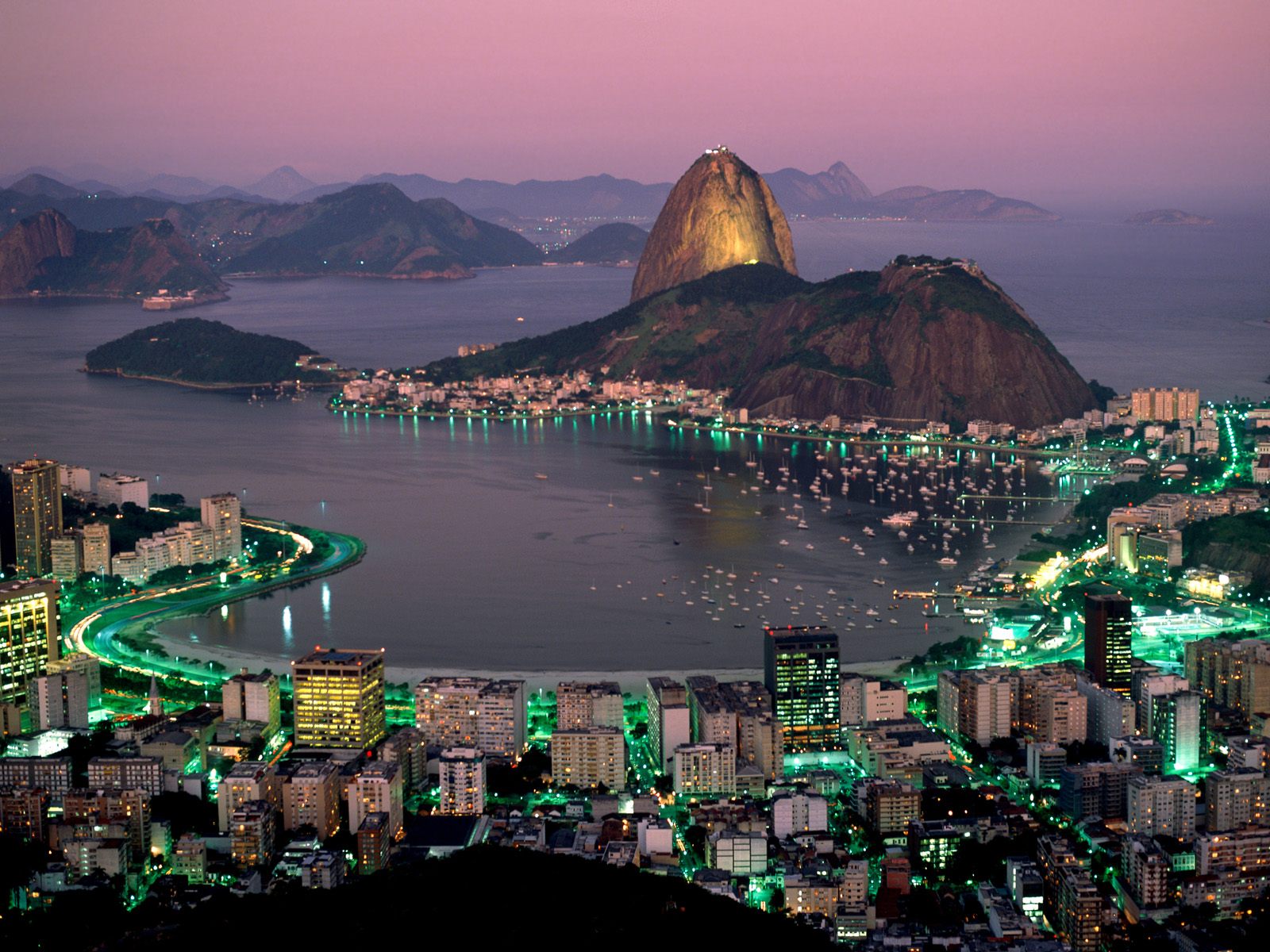


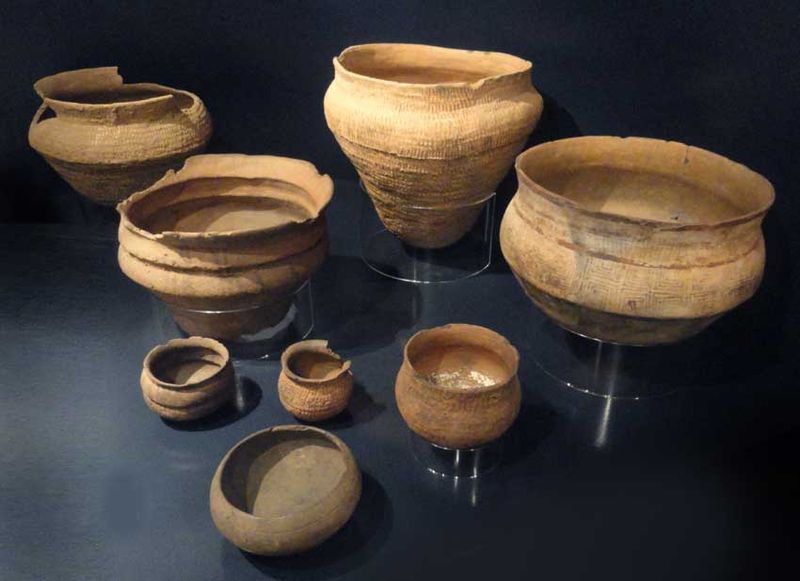

.jpg/220px-Foto_oficial_de_Luiz_In%C3%A1cio_Lula_da_Silva_(estreita).jpg)


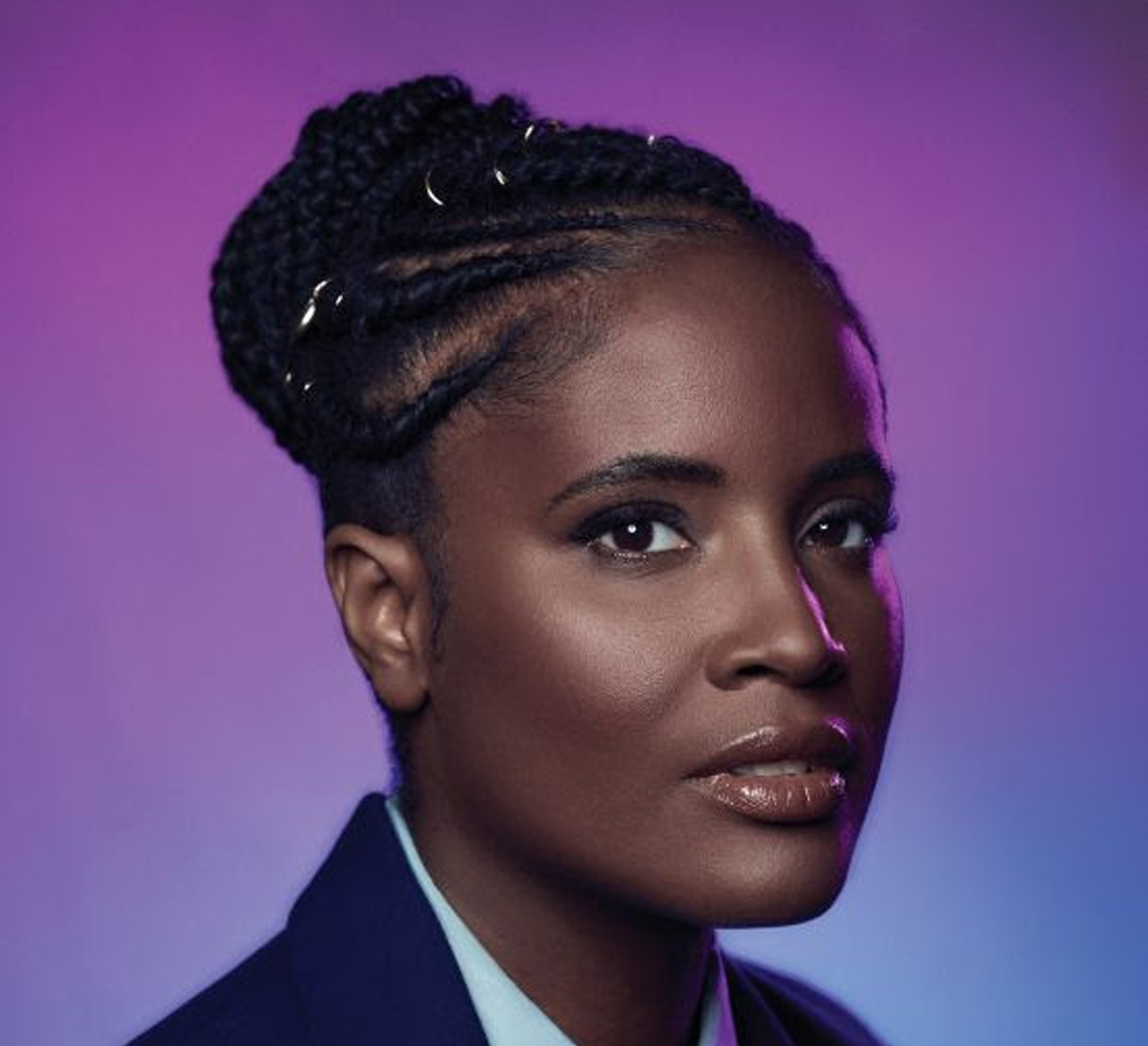





%2C_Rio_de_Janeiro%2C_Brazil.jpg/1024px-Olympic_Stadium_(Engenh%C3%A3o)%2C_Rio_de_Janeiro%2C_Brazil.jpg)
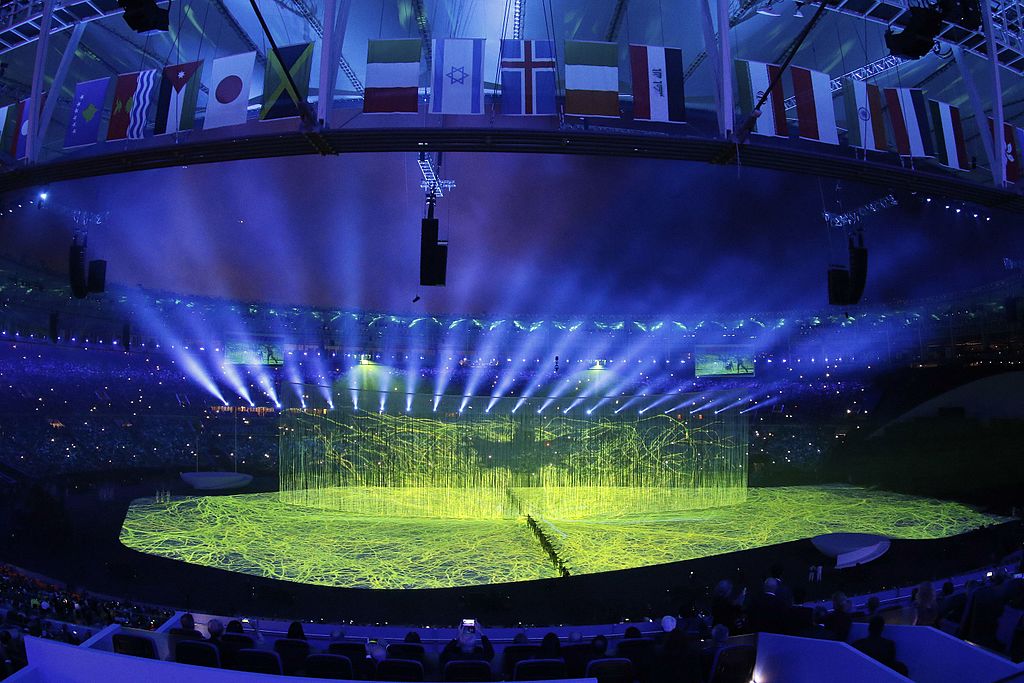
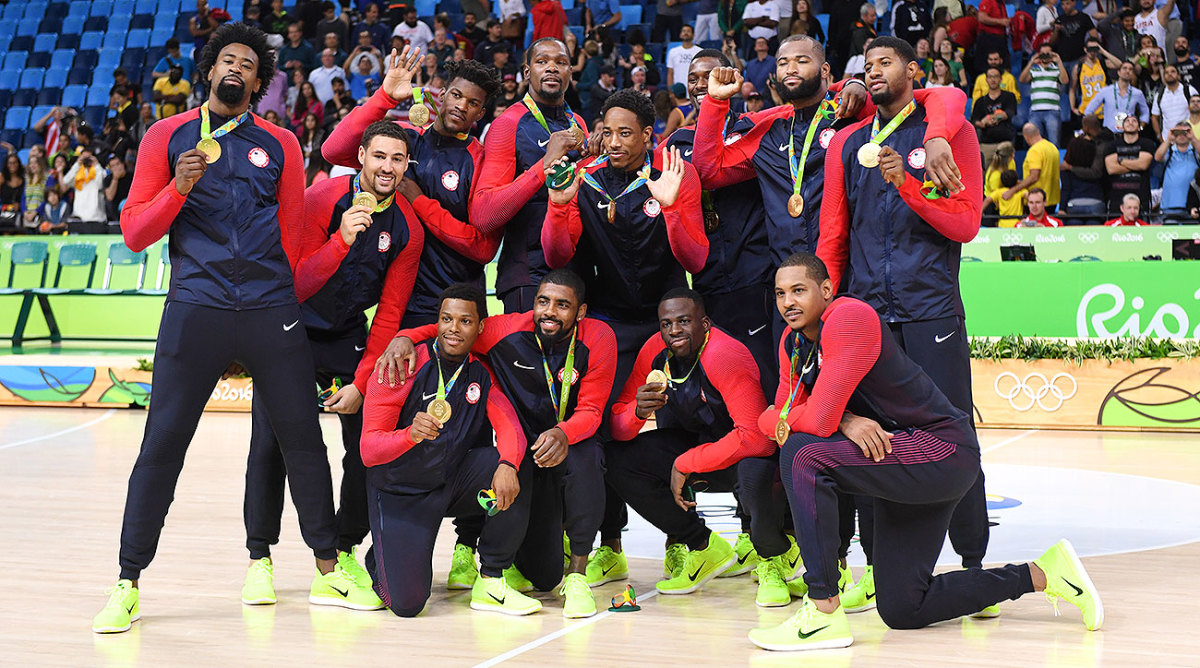
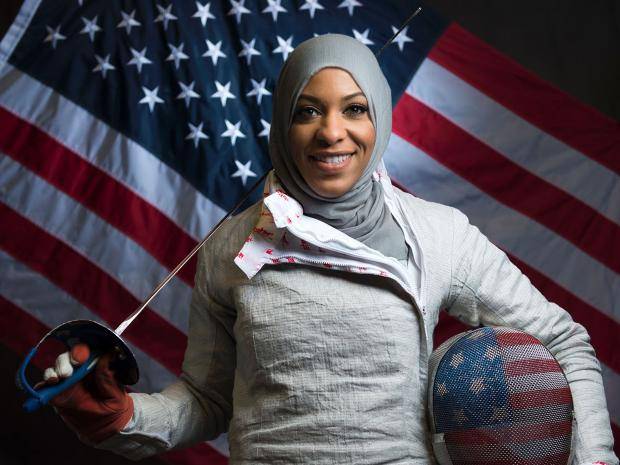

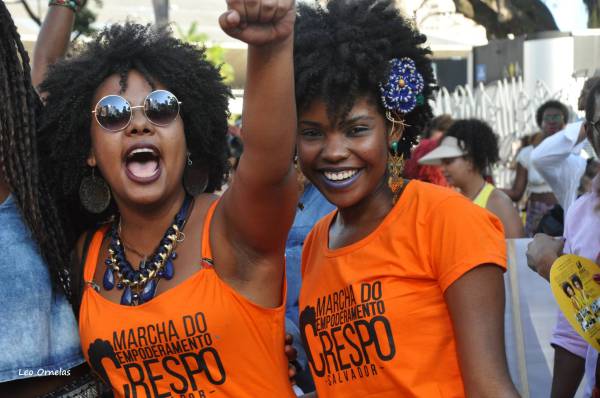
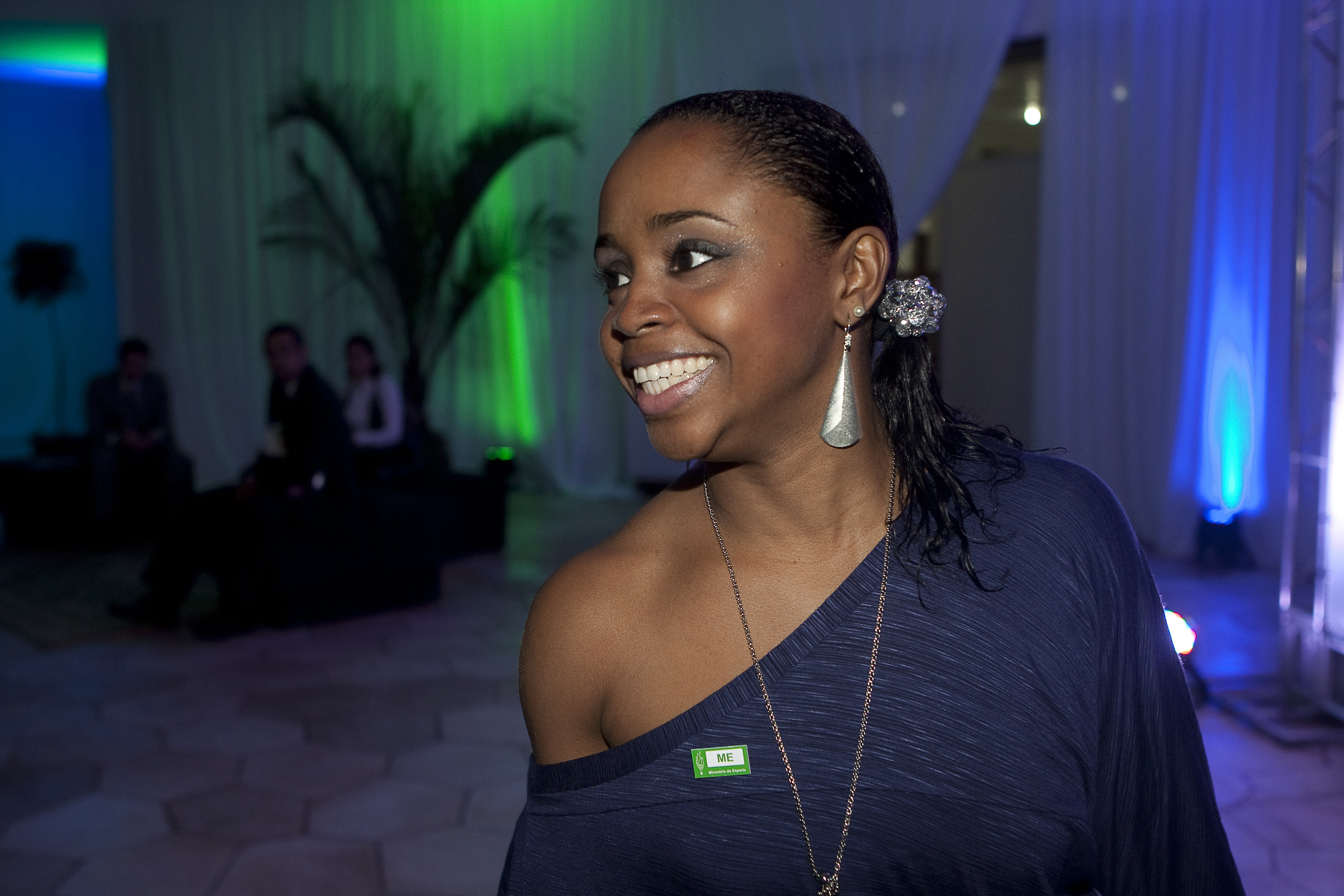

No comments:
Post a Comment